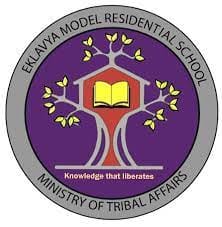| KVS Syllabus 2023 for PGT |
| Subjects | Detailed Syllabus |
| KVS PGT English Syllabus | Articles, Modal Auxiliaries, Narration, Pronoun, Adverb, Adjective, Verb, Preposition, Tenses, Punctuation, Voice, Vocabulary, Idioms & phrases, Antonym & Synonyms |
| KVS PGT Syllabus for Hindi | भाषा, संज्ञा एवं संज्ञा के भेद, सर्वनाम, विशेषण, क्रिया, अव्यय, वचन, लिंग, उपसर्ग एवं प्रत्यय, वाक्य निर्माण (सरल, संयुक्त एवं मिश्रित वाक्य), पर्यायवाची, विपरीपार्थक, अनेकार्थक, समानार्थी शब्द, विराम चिन्हों की पहचान एवं उपयोग, मुहावरे एवं लोकोक्तियाँ, अलंकार, सन्धि, तत्सम, तद्भव, देशज एवं विदेशी शब्द, समास |
| KVS PGT General Knowledge & Current Affairs Syllabus | Awards, Books & their authors, Sports, History, Geography, Current Affairs, Polity, Population Census, Indian Art & Culture |
| KVS PGT Reasoning Ability Syllabus | Mirror Image, Directions, Puzzles and Seating Arrangement, Syllogism, Data Sufficiency, Coding-decoding, Blood Relation, Order and Ranking, Alpha Numeric Symbol Series, Logical Reasoning |
| KVS PGT Computer Science Syllabus | Abbreviations, Basic Computer Terminology & Shortcuts, Web Technology, Database Management Systems, Browsers and Search Engines, Internet, General Concept of Social Networking, Computer Memory or Storage Devices, Computer Software & Hardware, History and Evaluation of Computers, Generations and Types of Computers, Operating Systems |
| KVS PGT Understanding the Learner Syllabus | Concept of growth, maturation and development, principles and development debates, development tasks and challenges. |
| Domains of Development: Physical, Cognitive, Socio-emotional, Moral, etc., deviations in development and its implications, |
| Understanding Adolescence: Needs, challenges, and implications for designing institutional support. |
| Role of Primary and Secondary Socialization agencies. Ensuring Home school continuity. |
| KVS PGT Understanding Teaching Learning Syllabus | Theoretical perspectives on Learning -Behaviorism, Cognitivism, and Constructivism with special reference to their implications for:
vii. The role of the teacher
viii. The role of the learner
ix. Nature of teacher-student relationship
x. Choice of teaching methods
xi. Classroom environment
xii. Understanding of discipline, power etc. |
Factors affecting learning and their implications for:
iv. Designing classroom instructions,
v. Planning student activities and,
vi. Creating learning spaces in the school. |
Planning and Organization of Teaching-Learning
viii. Concept of Syllabus and Curriculum, Overt and Hidden Curriculum, curriculum organization
ix. Competency-based Education, Experiential learning, etc.
x. Instructional Plans: -Year Plan, Unit Plan, Lesson Plan
xi. Instructional material and resources
xii. Information and Communication Technology(ICT) for teaching-learning
xiii. Evaluation: Purpose, types and limitations. Continuous & Evaluation, Characteristics of a good tool.
xiv. Assessment of learning, for learning and as learning: Meaning, considerations in planning each. |
| KVS PGT Enhancing Teaching-Learning Syllabus | Classroom Observation and Feedback |
| Principles of Comprehensive purpose and Reflections and Dialogues as a means of constructivist teaching |
| KVS PGT Creating Conducive Learning Environment Syllabus | The concepts of Diversity, disability and Inclusion, implications of disability as a social construct, types of disabilities-their identification and interventions |
| Concept of School Mental Health, addressing the curative, preventive and promotive dimensions of mental health for all students and staff. Provisioning for guidance and counseling. |
| Developing Schools and communities as a learning resource. |
| KVS PGT School Organization and Leadership Syllabus | Leader as a reflective practitioner, team builder, initiator, coach and mentor. |
| Perspectives on School Leadership: instructional, distributed and transformative |
| Vision building, goal setting and creating a School Development Plan |
| Using School Processes and forums for strengthening teaching learning-Annual Calendar, timetabling, parent-teacher forums, school assembly, teacher development forums, using achievement data for improving teaching-learning, School Self Assessment and Improvement |
| Creating partnerships with the community, industry and other neighboring schools and Higher Education Institutes-forming learning communities |
| KVS PGT Syllabus for Perspectives in Education | Role of school in achieving aims of education. |
| NEP-2020: Curriculum and Pedagogy in Schools: Holistic & Integrated Learning; Equitable and Inclusive Education: Learning for All; Competency-based learning and Education. |
| Guiding Principles for Child Rights, Protecting and provisioning for the rights of children to a safe and secure school environment, Right of Children to Free and Compulsory Education Act, 2009, |
| Historically studying the National Policies in education with special reference to school education, |
| School Curriculum Principles: Perspective, Learning and Knowledge, Curricular Areas, School Stages, Pedagogy and Assessment |
| Concerned Subjects | Check the concerned subject syllabus from the KVS PGT Syllabus PDF shared above. |





